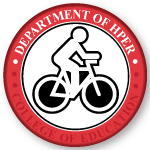Document Type
Article
Publication Date
2014
Publication Title
BMC Public Health
Volume
14
First Page
118
Abstract
Background:
GoGirlGo! (GGG) is designed to increase girls’ physical activity (PA) using a health behavior and PA-based curriculum and is widely available for free to afterschool programs across the nation. However, GGG has not been formally evaluated. The purpose of this pilot study was to evaluate the effectiveness of the GGG curricula to improve PA, and self-efficacy for and enjoyment of PA in elementary aged girls (i.e., 5-13 years).
Methods:
Nine afterschool programs were recruited to participate in the pilot (within subjects repeated measures design). GGG is a 12-week program, with a once a week, one-hour lesson with 30 minutes of education and 30 minutes of PA). Data collection occurred at baseline, mid (twice), post, and at follow-up (3-months after the intervention ended). PA was assessed via accelerometry at each time point. Self-efficacy for and enjoyment of PA was measured using the Self-Efficacy Scale and the Short-PA enjoyment scale and was assessed at baseline, post, and follow-up. Fidelity was assessed at midpoint.
Results:
Across all age groups there was a statistically significant increase in PA. Overall, on days GGG was offered girls accumulated an average of 11 minutes of moderate-to-vigorous PA compared to 8 minutes during non-GGG days. There was a statistically significant difference in girls’ self-efficacy for PA reported between baseline and post, which was maintained at follow-up. An improvement in enjoyment of PA for girls was found between baseline and follow-up. According to fidelity assessment, 89% of the activities within the curriculum were completed each lesson. Girls appeared to respond well to the curriculum but girls 5-7 years had difficulties paying attention and understanding discussion questions.
Conclusions:
Even though there were statistically significant differences in self-efficacy for PA and enjoyment of PA, minimal increases in girls’ PA were observed. GGG curricula improvements are warranted. Future GGG programming should explore offering GGG every day, modifying activities so that they are moderate-to-vigorous in intensity, and providing additional trainings that allow staff to better implement PA and improve behavior management techniques. With modifications, GGG could provide a promising no-cost curriculum that afterschool programs may implement to help girls achieve recommendations for PA.
Recommended Citation
Huberty, Jennifer L.; Dinkel, Danae M.; and Beets, Michael W., "Evaluation of GoGirlGo!; A practitioner based program to improve physical activity" (2014). Health and Kinesiology Faculty Publications. 6.
https://digitalcommons.unomaha.edu/hperfacpub/6
Included in
Educational Assessment, Evaluation, and Research Commons, Health and Physical Education Commons


Comments
© 2014 Huberty et al.; licensee BioMed Central Ltd. This is an Open Access article distributed under the terms of the Creative Commons Attribution License (http://creativecommons.org/licenses/by/2.0), which permits unrestricted use, distribution, and reproduction in any medium, provided the original work is properly cited. The Creative Commons Public Domain Dedication waiver (http://creativecommons.org/publicdomain/zero/1.0/) applies to the data made available in this article, unless otherwise stated.